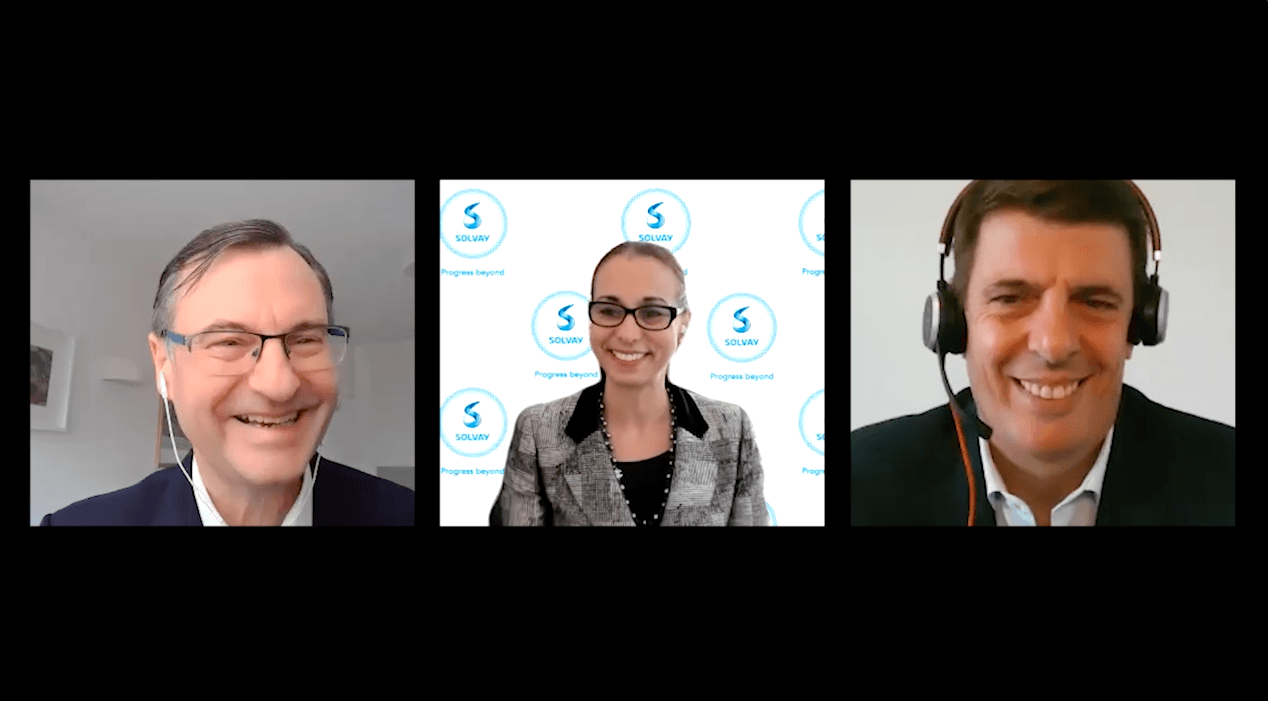Reimagining Resilience at Solvay
There’s a long road ahead. Twenty-seven percent of U.S.-based executives do not expect to reach pre-COVID-19 levels of recovery for their companies until after 2021, according to the second quarter CEO Economic Outlook Index from Business Roundtable.
Considering plans for capital spending, hiring, and sales expectations over a six-month period, CEOs’ outlook dropped to the lowest level since mid-2009. But a crisis is an opportunity for revitalization and education.
“This COVID-19 is a large-scale stress test for the leaders we are,” says Dr. Ilham Kadri, CEO and president of the executive committee at Solvay.
In Tuesday’s keynote address at GSX+, Kadri and Werner Cooreman, CPP, PSP, senior vice president and group security director at Solvay Group, a multinational chemical company operating across 60 countries, discussed the long-term effect 2020 may have on the business and how security is playing a role in ensuring the organization’s future preparedness and risk management strategy.
After the emergence of the COVID-19 pandemic in early 2020, some of Solvay’s markets took a hit and will likely not recover until 2023 if a vaccine is unavailable, including the aerospace market, Kadri says. Others, like components used to make tires for energy-efficient vehicles, are bouncing back from an early-pandemic slump. And product lines in healthcare, electronics, and consumer goods—including natural vanilla flavoring, which was in high demand by home bakers—remained resilient throughout the crisis.
“There is no long term if you don’t take care of the short term,” Kadri says, adding that the executive team at Solvay has been splitting its attention on the microscope view—managing the day-to-day changes around the hygienic and economic crises triggered by COVID-19—and the telescopic view—how the changes of 2020 will shape the future of the company and the world, including extended shifts to telework.
Not all of Solvay’s industries have slowed down, however. Some of them have accelerated, adding new product lines and innovations to meet customers’ changing needs. For example, Solvay introduced a new sanitizing solution that remains active on surfaces for 24 hours, killing germs over a prolonged period to keep spaces safer longer.
“It is just time now to do what is right and double down on the basics,” Kadri says. Security is [a] part of that shift, adjusting quickly to meet the business’s needs, especially during times of rapid change and innovation.
When Kadri came onboard as Solvay’s CEO in early 2019, she moved the security function directly under the CEO office. She serves as security’s executive sponsor in the organization. From this vantage point, Cooreman and his security team align their efforts with Solvay’s overall enterprise risk management (ERM) framework to proactively protect the company.
For example, he says that any major change in product offerings or potential acquisitions can lead to a change in threat posture. Security must work hand-in-hand with business leadership to understand what’s coming around the corner and to develop security risk management plans in advance.
Understandably, Kadri adds that resiliency is a key focus for Solvay right now.
“Security is increasingly about resilience and preparation—also for black swans like COVID-19—rather than just protecting and checking the box in terms of ‘it’s compliant,’” she says. “So now we need to adapt to new norms and almost things we couldn’t imagine. We call it a crisis of a lifetime… but there may be other epidemic challenges facing humanity, so resilience is important. What I’m asking Werner is how we can develop that resilience toward business continuity and build this in our culture.”
Cooreman adds that in the face of any black swan possibilities, the company’s mind-set must shift. To prepare for whatever is around the corner, to bounce back, and to protect employees, assets, and information, organizational leaders must rethink infrastructure and processes.
“Resilience also requires a transversal approach—thinking out of the box,” Cooreman says. “And for us, that was also key. In security, yes, we do have our subject matter expertise, but we have to step outside of that for the greater good of the company. And that’s what everybody did, actually. Nobody’s ever dealt with a crisis of the nature and the size of COVID. Everybody had to step up. Everybody had to learn, unlearn, and relearn again with respect to how to conduct business and move on in such an environment.”
Kadri adds that Solvay needed to reinvent what it considers progress.
“I believe we will overcome this crisis, and this crisis has shown the best in our people and in communities,” she says. “Under pressure, solidarity prevails, too.”
